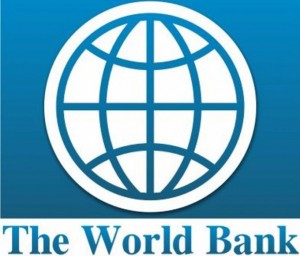Ghana reduces poverty to 21.4% – World Bank
 The World Bank Group says strong economic growth in Ghana within the past two decades has helped cut the poverty rate in half, from 52.6 per cent to 21.4 per cent between 1991 and 2012.
The World Bank Group says strong economic growth in Ghana within the past two decades has helped cut the poverty rate in half, from 52.6 per cent to 21.4 per cent between 1991 and 2012.
Ghana’s poverty rate in 2012 was less than half the African average of 43 per cent and extreme poverty also declined from 37.6 per cent in 1991, to 9.6 per cent in 2013, according to a new report by the Bank titled “Poverty Reduction in Ghana: Progress and Challenges.”
Additionally, the report says Ghana showed improvement in non-monetary indicators of poverty.
“Infant mortality declined from 57 deaths per 1,000 live births in 1998 to 41 in 2014 and under-5 mortality declined by more than half.”
The report which examines the factors behind Ghana’s economic performance, progress and challenges in poverty reduction, attributes the progress largely to attainment of middle income status and Ghana’s economic growth: annual GDP growth averaged between 4 and 5 per cent in the 1990s, reaching nearly 8 per cent after 2006.
The report also attributes the progress to better job opportunities resulting from “a better educated and more mobile labour force”: it says the share of the labour force without schooling dropped from 41 per cent to 21 per cent between the period 1991 to 2012.
“Economic and socio-demographic change driven by structural transformation, the emergence of a more skilled labour force and geographical mobility helped reduce poverty in Ghana,” the Bank says.
Pierella Paci, Lead Economist with the Poverty Global Practice at the World Bank, said Ghana’s challenge is ensuring that prosperity is shared across the entire population.
“A multifaceted, well-targeted and fiscally sustainable package of policies that balances the needs of the poor with the needs of the economy will help Ghana move in the right direction”, he was quoted as saying.
Unfortunately, the Bank says the deteriorating macroeconomic environment in Ghana, growing inequality in household consumption, and regional disparities in welfare are challenging Ghana’s progress.
The report notes that GDP growth has halved since 2014 and is projected to slow further to 3.4 per cent in 2015 due to the energy crisis, high inflation and other factors.
Also, poverty has become concentrated in rural areas and the north, with one out of three poor people living in rural areas.
The report says that by 2012, consumption per capita among the top decile of distribution was seven times greater than among the bottom percentile and the Gini index, which is used to measure inequality, rose by 8 per cent, from 37.5 to 40.8 per cent.
“The right policies can consolidate Ghana’s success in poverty reduction and promote shared prosperity”, the Bank says
The Bank’s recommendations for Ghana include a focus on the prevention of further macroeconomic deterioration, improvement in the business climate to drive private sector growth, investment in infrastructure and skills development and the expansion of social protection.
By Emmanuel Odonkor
